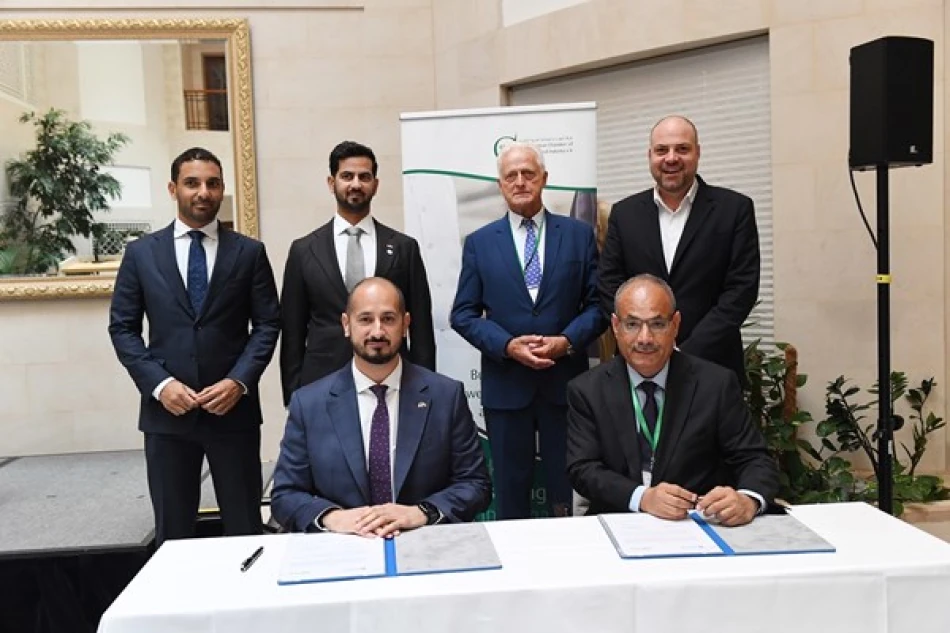
Abu Dhabi Chamber Strengthens Investment Cooperation with Arab-German Chamber of Commerce and Industry
UAE-Germany Business Partnership Deepens as Abu Dhabi Chamber Signs Strategic Deal in Berlin
The Abu Dhabi Chamber of Commerce has formalized a strategic cooperation agreement with the German-Arab Chamber of Commerce and Industry, marking a significant milestone in UAE-Germany economic relations. The deal, signed during an official business delegation visit to Berlin, aims to accelerate bilateral trade and investment while positioning Abu Dhabi as a gateway for German companies seeking access to Middle Eastern, Asian, and African markets.
A Partnership Built on Momentum
The timing of this agreement reflects the robust growth trajectory of UAE-Germany economic ties. Non-oil trade between the two nations reached AED 50.6 billion ($13.8 billion) in 2024, representing a 5.4% increase from the previous year. More tellingly, German company membership in the Abu Dhabi Chamber surged by 17% through August 2025, signaling growing confidence among German businesses in the UAE market.
Khaled bin Hadi, Abu Dhabi Chamber board member, and Abdulaziz Al-Mikhlafi, Secretary-General of the German-Arab Chamber, signed the agreement in the presence of UAE Ambassador to Germany Ahmed Al-Attar and other senior officials from both sides.
Strategic Framework for Future Growth
Core Cooperation Areas
The agreement establishes comprehensive frameworks spanning multiple business sectors. Key provisions include enhanced information sharing on economic, commercial, and investment opportunities, alongside dedicated support for business delegations and economic missions between the two countries.
The partnership prioritizes startup and SME support, facilitating access to business incubators and accelerators—a critical component given Germany's strong industrial base and the UAE's emerging startup ecosystem. Technical and knowledge exchange programs will drive innovation while expanding bilateral partnership opportunities.
Focus on Next-Generation Industries
Both chambers are targeting cooperation in renewable energy and digital transformation—sectors where Germany's technological expertise aligns with the UAE's ambitious sustainability goals. This strategic focus reflects broader regional trends, as Gulf nations diversify their economies away from oil dependency while German companies seek new markets for their advanced technologies.
Market Implications and Competitive Positioning
For German businesses, Abu Dhabi offers more than just a regional hub—it provides access to the UAE's sophisticated financial infrastructure, logistics networks, and regulatory frameworks that have made it a preferred destination for international companies. The UAE's strategic location positions German firms to tap into the $3.5 trillion combined GDP of the Middle East, Asia, and Africa regions.
This partnership also reflects Germany's broader strategy of strengthening economic ties with Gulf states as European markets face slower growth. Similar to how Singapore has positioned itself as a gateway to Southeast Asia, Abu Dhabi is leveraging its infrastructure and business environment to become the preferred entry point for European companies targeting emerging markets.
Long-term Strategic Vision
Ambassador Al-Attar emphasized that the agreement represents "a strategic step to enhance economic partnership" that opens "new horizons for sustainable growth." The focus on renewable energy and digital transformation aligns with both countries' long-term economic strategies—Germany's Energiewende (energy transition) and the UAE's Net Zero by 2050 commitment.
The partnership directly supports Abu Dhabi Chamber's 2025-2028 roadmap, which aims to reinforce the emirate's position as a "trusted global gateway for investment, technology, and business." This institutional backing suggests the collaboration will extend beyond traditional trade promotion to encompass technology transfer and joint innovation initiatives.
For investors and businesses, this agreement signals deepening institutional support for UAE-Germany commercial relationships, potentially reducing regulatory barriers and creating new opportunities for joint ventures, particularly in high-growth sectors like clean technology and industrial innovation.
Most Viewed News

 Layla Al Mansoori
Layla Al Mansoori






